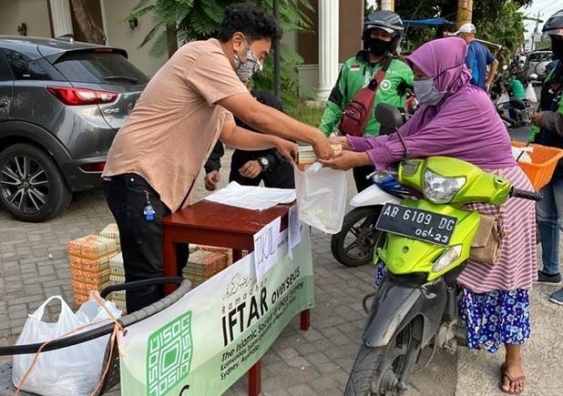Islamic Society of UNSW creating connections on campus and around the world
While COVID-19 has impacted the observation of Ramadan, this dedicated group of UNSW students and staff has ensured those in need receive assistance.
While COVID-19 has impacted the observation of Ramadan, this dedicated group of UNSW students and staff has ensured those in need receive assistance.

Megan Maurice
UNSW News & Content
0414376510
megan.maurice1@unsw.edu.au
Over the weekend the Islamic Society of UNSW (ISOC), along with the Islamic community around the world, celebrated Eid al-Fitr, the "festival of breaking the fast" which marks the end of Ramadan.
This year marked an especially difficult time to observe Ramadan and celebrate Eid, as COVID-19 related restrictions limited the ability of families and communities to be in close proximity to each other.
While some traditions couldn’t be carried out as they normally would, ISOC managed to keep a very special one alive.
On 17 and 18 May the society sponsored two overseas iftars in Jakarta, distributing food to those observing Ramadan.
Iftar is the main meal of the fasting day during Ramadan, when Islamic people fast during daylight hours. It occurs just after sunset each day and often involves a community gathering as families and friends join together to eat and reflect on the day.
Due to the COVID-19 lockdown in Jakarta, the iftars were held on the road where the food was distributed to people to collect and take back to their homes.
As well as the two roadside iftars ISOC also sent food to Khairunnisa, a local orphanage, for the children to receive iftar. In total 225 meals were served.
The food deliveries were organised by Sister Felda Antani and Sister Dian Rahmawati, both of whom are graduates of UNSW.
ISOC UNSW have sponsored 13 iftars in Indonesian since 2015 and was pleased to continue this work during the COVID-19 pandemic, ensuring this local community received food in a time of great need around the world.
UNSW Muslim chaplain Mahmoud Jaame was pleased with the support from across the university.
“We would like to thank all those who donated toward the overseas iftars this year,” he said.
“You may also wish to donate toward our COVID-19 Appeal to help the struggling overseas students who are not eligible for the government assistance.”
Doing charitable work is an important part of the Islamic faith, especially around Ramadan and ISOC is also preparing to do this work on campus.
The society has received a Connection Scholarship, supported by Medibank, which will allow them to pack and deliver food hampers to international students in and around campus.
The students leading the project are arranging to buy food in bulk, package it into hampers and provide contact-free deliveries to international students who require support.
The Islamic Society of UNSW was founded in 1969 and has been an important part of the UNSW community since this time.
Originally called the Muslim Students Association of UNSW, its name was changed in 1994 to reflect the wider diversity of members, including many staff.
ISOC provides many important services to its members and the wider community, including including Islamic Awareness Week, where members lead initiatives to promote a correct understanding of the Islamic faith.